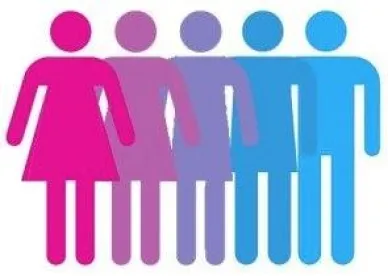As of January 1, 2019, intersex Germans, meaning Germans with sex characteristics not fitting neatly within the standard understanding of males and females, will be able to register their gender as “divers,” which translates to “miscellaneous.” This new gender classification will be included on such documents as birth certificates, passports, and driver’s licenses.
Since 2013, Germany has permitted parents of babies born without a clear gender to leave the baby’s gender status blank so that it can decide its own gender at a later date. But the new “divers” gender classification derives from a 2017 Federal Constitutional Court decision holding that requiring intersex citizens to choose between “male” and “female” on government documents was unconstitutional and discriminatory. The plaintiff, in that case, had sought to change their gender identity from female to “inter/diverse,” but was rejected based on that status not being legally recognized at the time. The Federal Constitutional Court presented German lawmakers with two choices: either create a third gender option or do away with gender classifications entirely. The German government took up the challenge, and in August 2018, the Cabinet approved providing citizens a third gender option. In December 2018, Germany’s Parliament passed legislation officially permitting the same.
Under the new law, adults will be able to switch their gender identity to “divers” by producing a doctor’s statement or other medical certification confirming their intersex status. Additionally, parents will be able to use the “divers” category for newborns presenting with unclear sex traits. Some LGBTQ advocates have criticized the medical documentation requirement, arguing that gender status encompasses more than physical traits, and also should encompass those that mentally or emotionally identify as neither male nor female. But other commentators believe that the law is at least a step in the right direction towards societal acceptance of gender fluidity.
Germany is the first European country to explicitly recognize a third gender status, although other European countries permit individuals to change their gender. Other countries, such as Australia, Canada, and India, as well as certain U.S. states, already recognize a third gender status.



 />i
/>i
